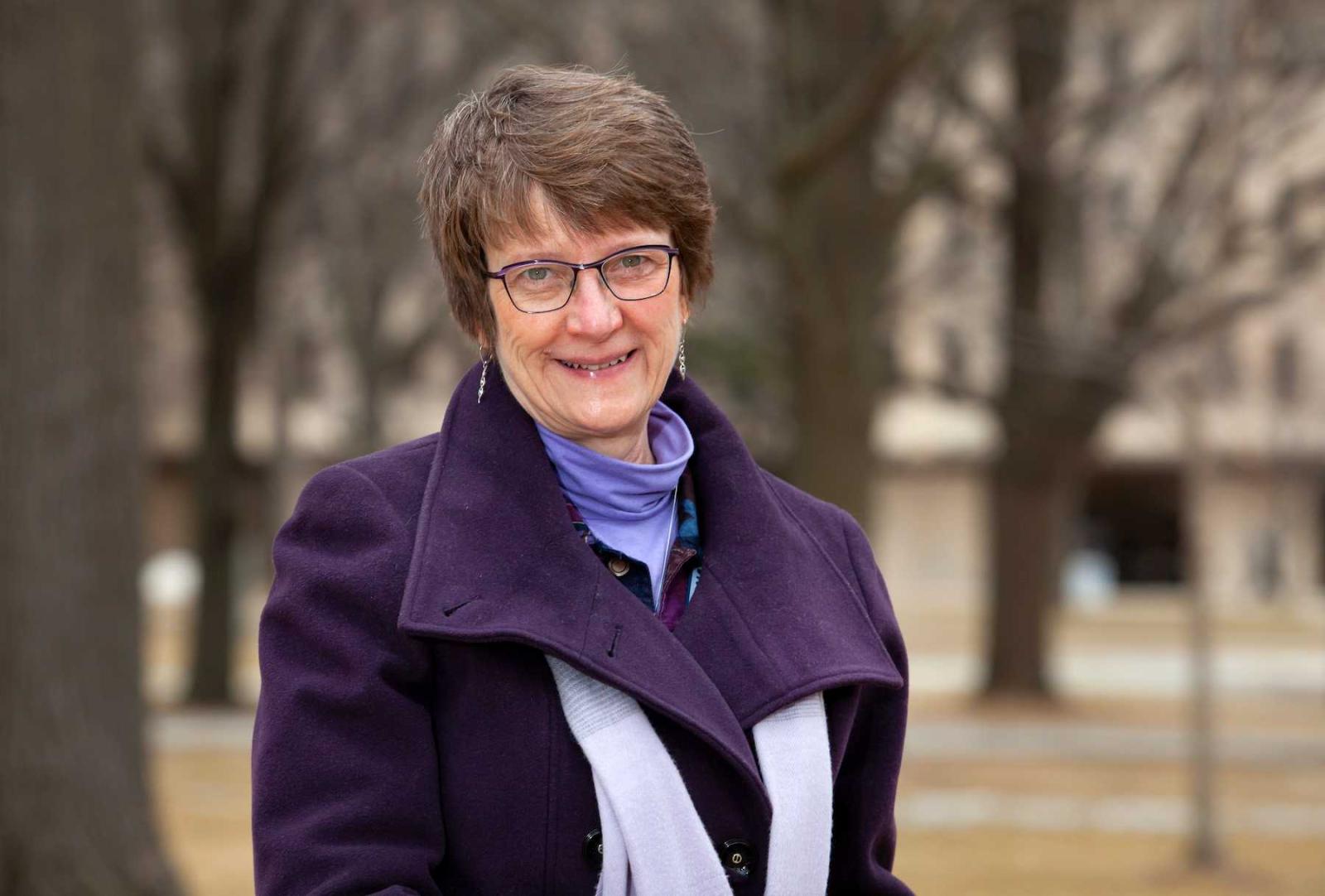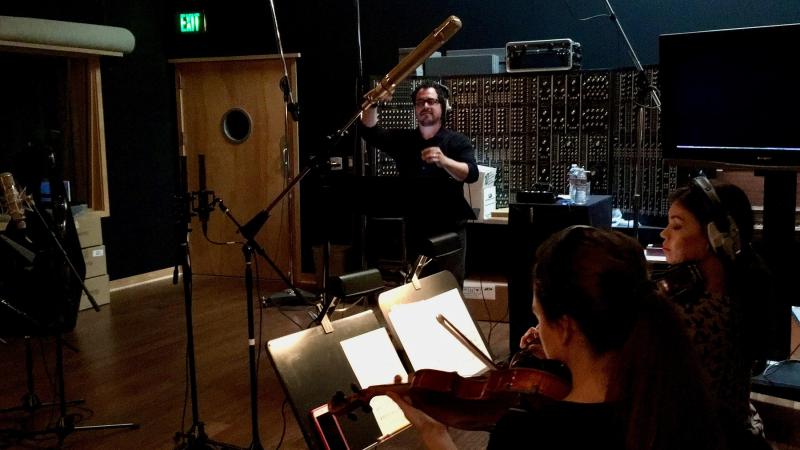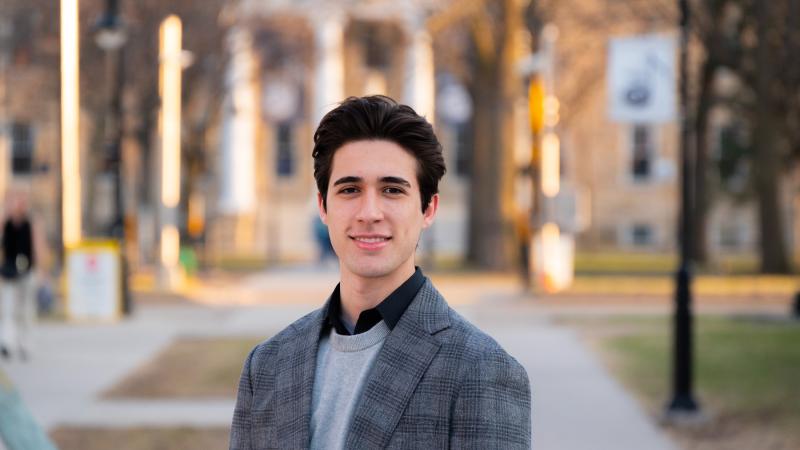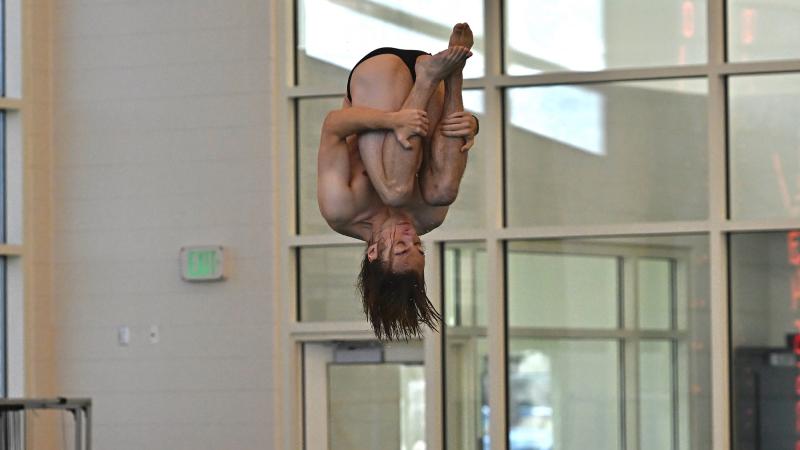About the series: On Main Hall Green With … is an opportunity to connect with faculty on things in and out of the classroom. We’re featuring a different Lawrence faculty member each time — same questions, different answers.
---
Beth De Stasio ’83, the Raymond H. Herzog Professor of Science and professor of biology, has been a leader in the sciences since joining the Lawrence faculty 30 years ago.
Most recently, she was part of the faculty group that led the planning for the new Science Learning Commons in Youngchild Hall. It opened in the fall to rave reviews.
“It’s like flying an airplane up there,” she said of teaching in the reimagined classroom. “There are a lot of buttons to push. The technology is amazing.”
De Stasio also played a lead role in recent efforts to introduce a new Health and Society minor. Debuting last fall, the minor allows students to explore the intersection of human health and global social inequities.
She also leads the pre-health advising team, working with students eyeing pre-med and pre-health programs when they graduate from Lawrence.
Nine years after her 1983 graduation from Lawrence, De Stasio returned to her alma mater and set about establishing a program in molecular biology.
In 2008, she and her husband, Bart De Stasio, the Dennis and Charlot Nelson Singleton Professor of Biological Sciences and professor of biology, co-taught at Lawrence’s London Centre. And she was the recipient of a Fulbright Scholar Fellowship in 2009 to conduct research at the Karolinska Institute near Stockholm, Sweden.
We caught up with De Stasio to talk about interests in and out of the classroom.
In the classroom
Inside info: What’s one thing you want every student coming into your classes to know about you?
That I care about their growth and development as whole human beings.
Getting energized: What work have you done or will you be doing at Lawrence that gets you the most excited?
I’m always most excited about whatever I’m teaching at the moment. In Winter Term it was a new course that integrates career preparation and exploration with serious self-reflection for students who are thinking about any kind of career having to do with human health or health care provision. It has been wonderful to partner with our fantastic alumni network and with Jacklyn John Fischer in the Career Center to provide students a unique opportunity to explore. I’m also teaching our Senior Experience course and it is so exciting to see the projects that students have designed for themselves and to see their growth over time.
Going places: Is there an example of somewhere your career has taken you (either a physical space or something more intellectual, emotional or spiritual) that took you by surprise?
I finally got to do an off-campus program when Bart and I co-taught at the London Centre. That was a mind-expanding experience. We taught there in the fall and then I had a Fulbright Fellowship to collaborate with a colleague in Sweden, so we lived in Stockholm for the rest of the year. It is always humbling to live and work in a new culture, even if it seems to be not that different from our own.
Out of the classroom
This or that: If you weren’t teaching for a living, what would you be doing?
Oh, gosh. I love teaching so much that whatever I did I’m sure it would have to have a teaching component to it.
Right at home: Whether for work, relaxation or reflection, what’s your favorite spot on campus?
Lately it has been the walking paths along the river. Since the pandemic, it has been a great place to walk and talk with advisees, colleagues, and friends. My next favorite space is the new Science Learning Commons, where I taught Introductory Biology last term. It is awesome, and it changes the classroom dynamic in very positive ways.
One book, one recording, one film: Name one of each that speaks to your soul? Or you would recommend to a friend? Or both?
This is a very difficult question. I’m going to call out two books of non-fiction that I’ve used in my work: Harriet Washington’s Medical Apartheid is an eye-opening look at the inhumane treatment of human subjects, particularly those from marginalized communities, by members of the medical establishment, including in the late 20th century. It is a must-read for anyone thinking about going into a medical career because we must learn to treat all human beings equitably with compassion and understanding of our shared humanity. Quiet by Susan Cain is an important look at introversion and how our society often doesn’t value the gifts more introverted people bring to our classrooms, teams, and families.
Recording: I’m going with any album of Herb Alpert. It’s what I turn on (loudly) when it’s time to clean the house.
Film: I’m really into Finding Your Roots with Henry Louis Gates Jr. Great mix of cultural history, genetics, and family histories. I know, it’s not a film, but you’ll find it on PBS. How’s that for old school?




